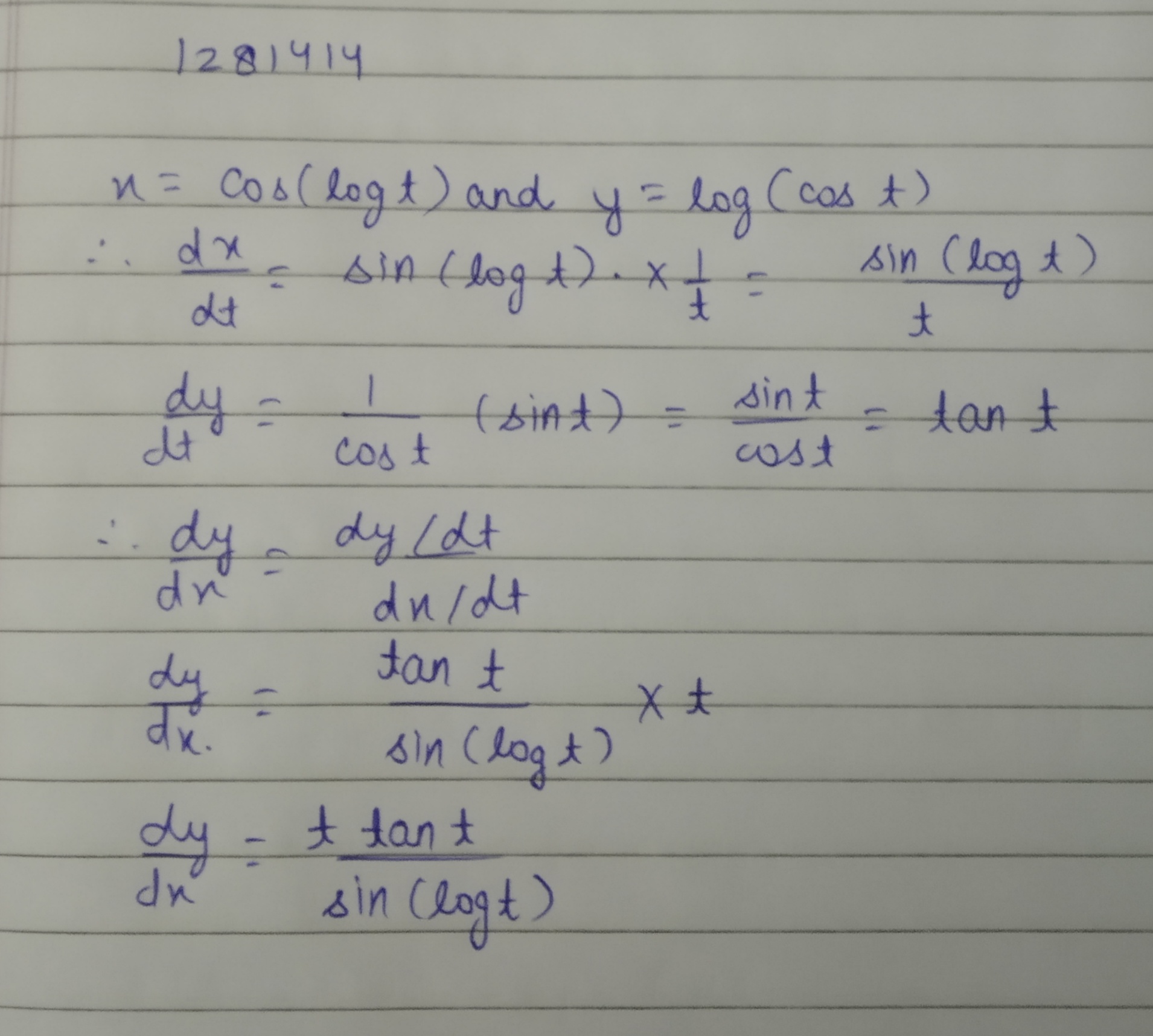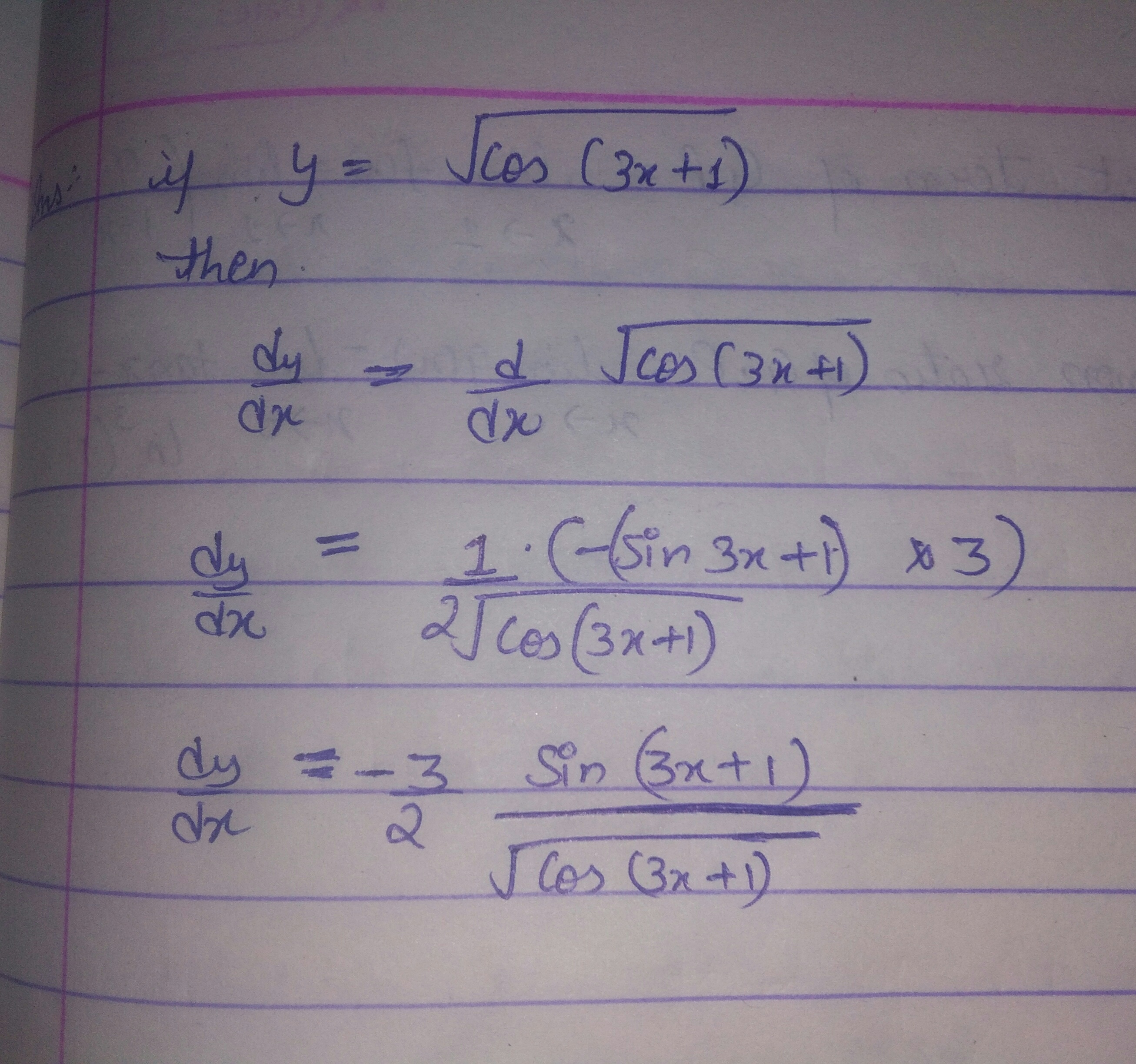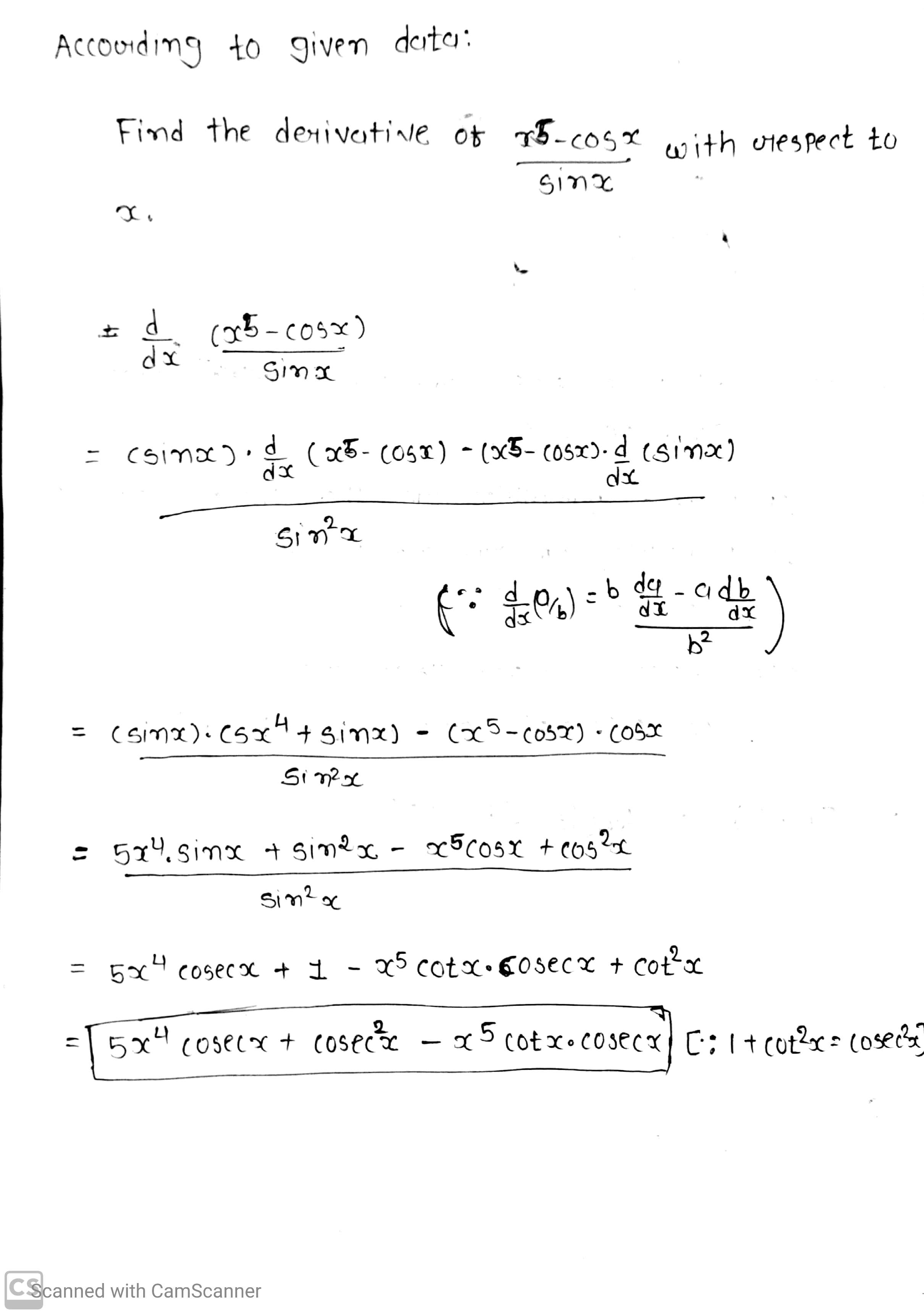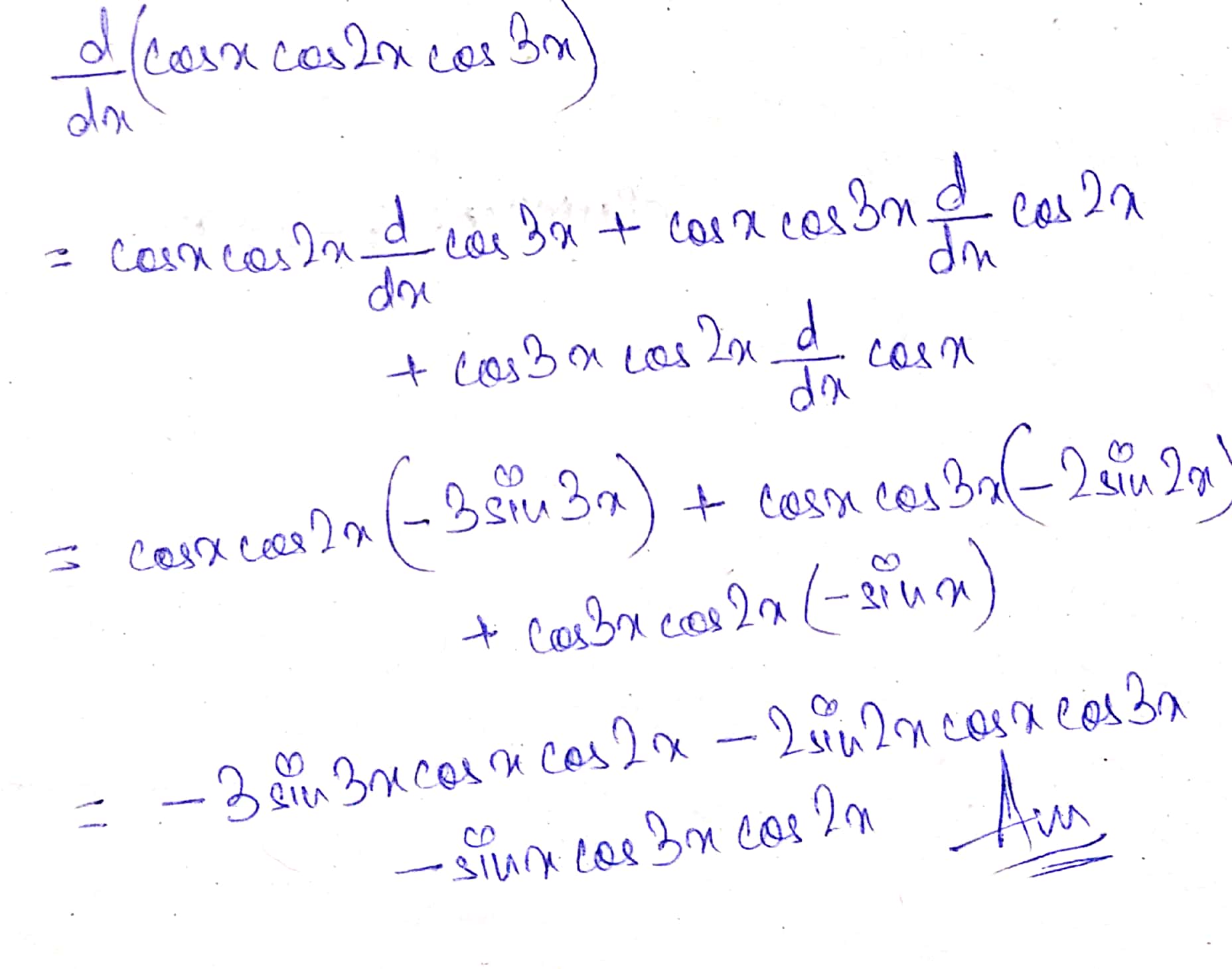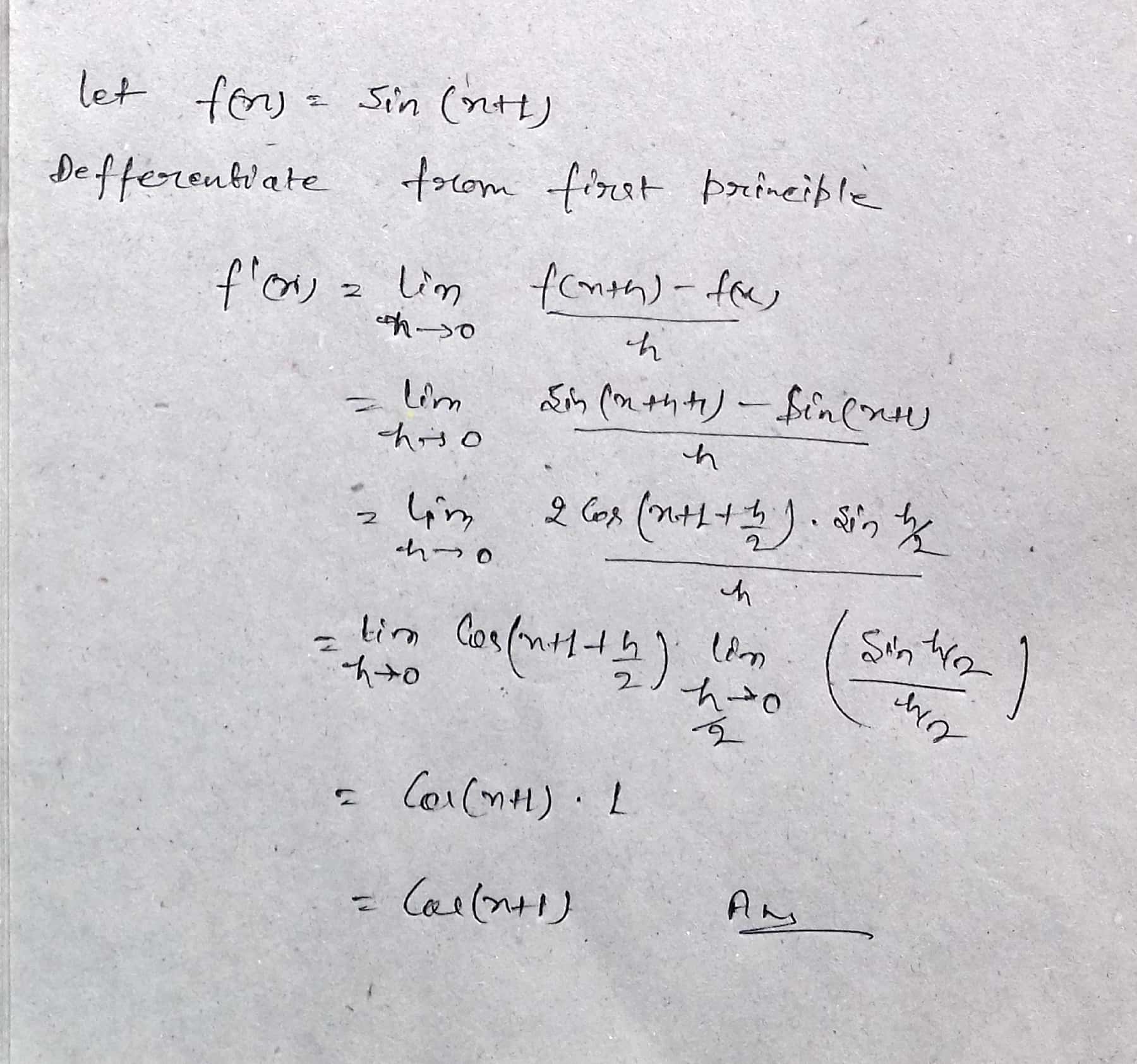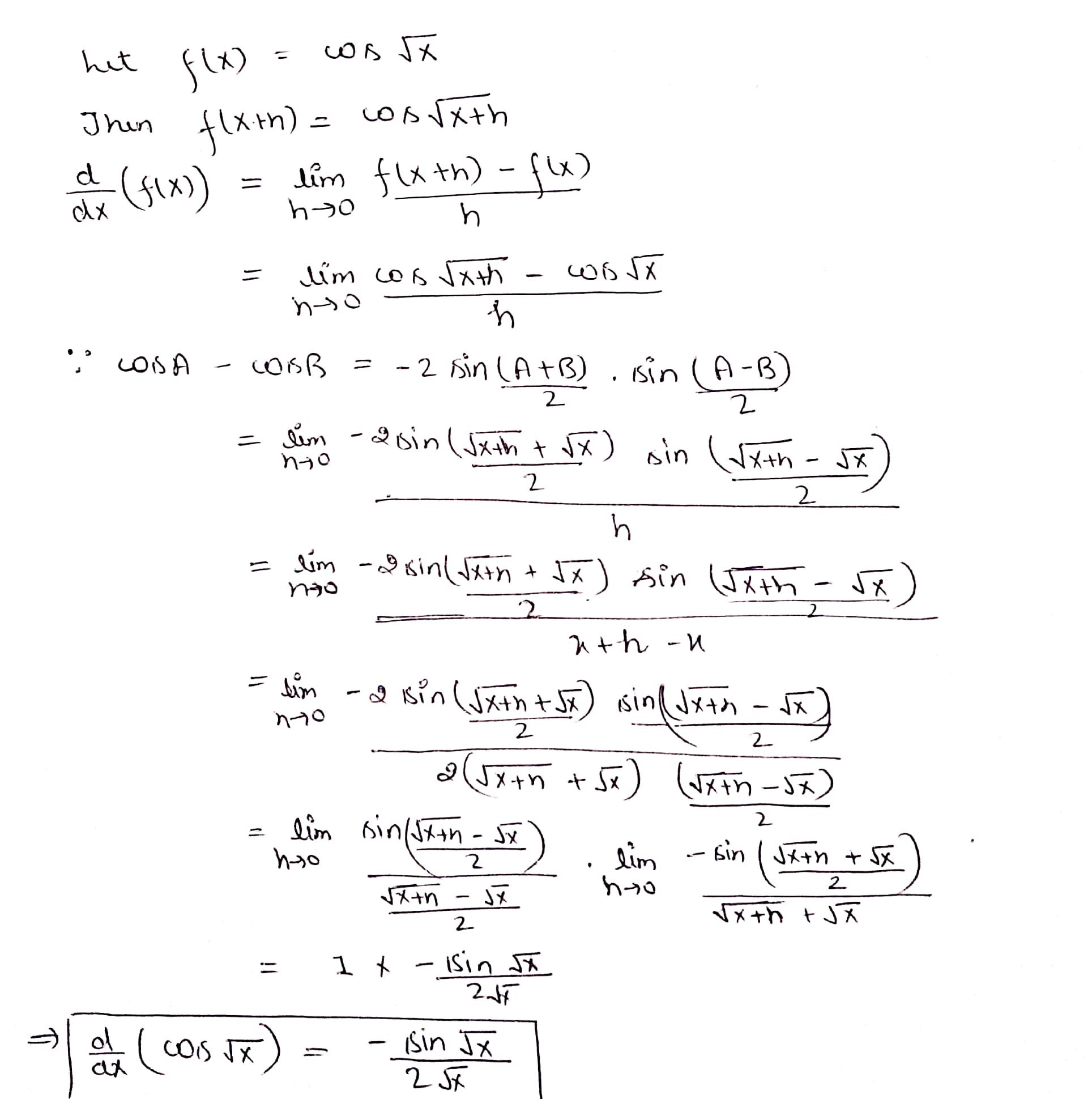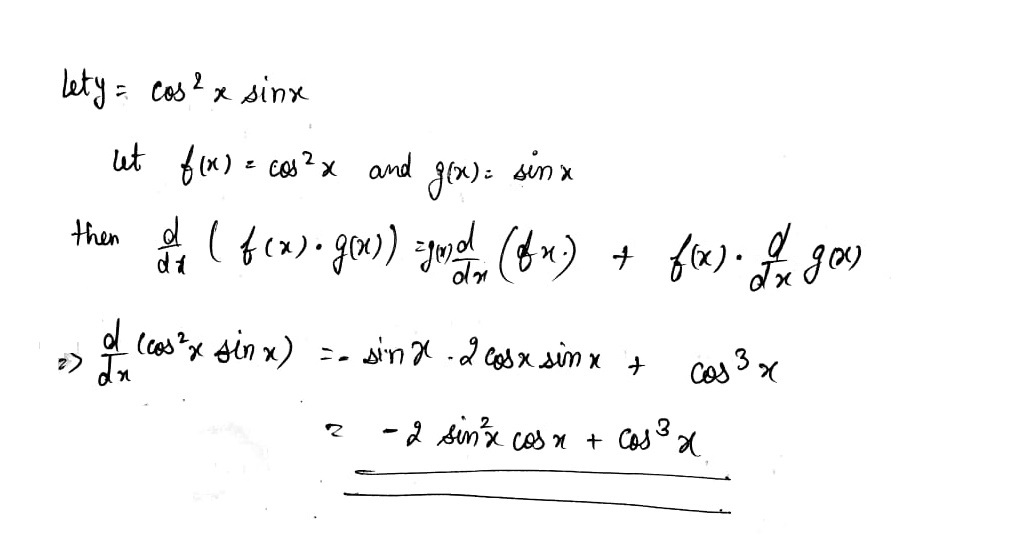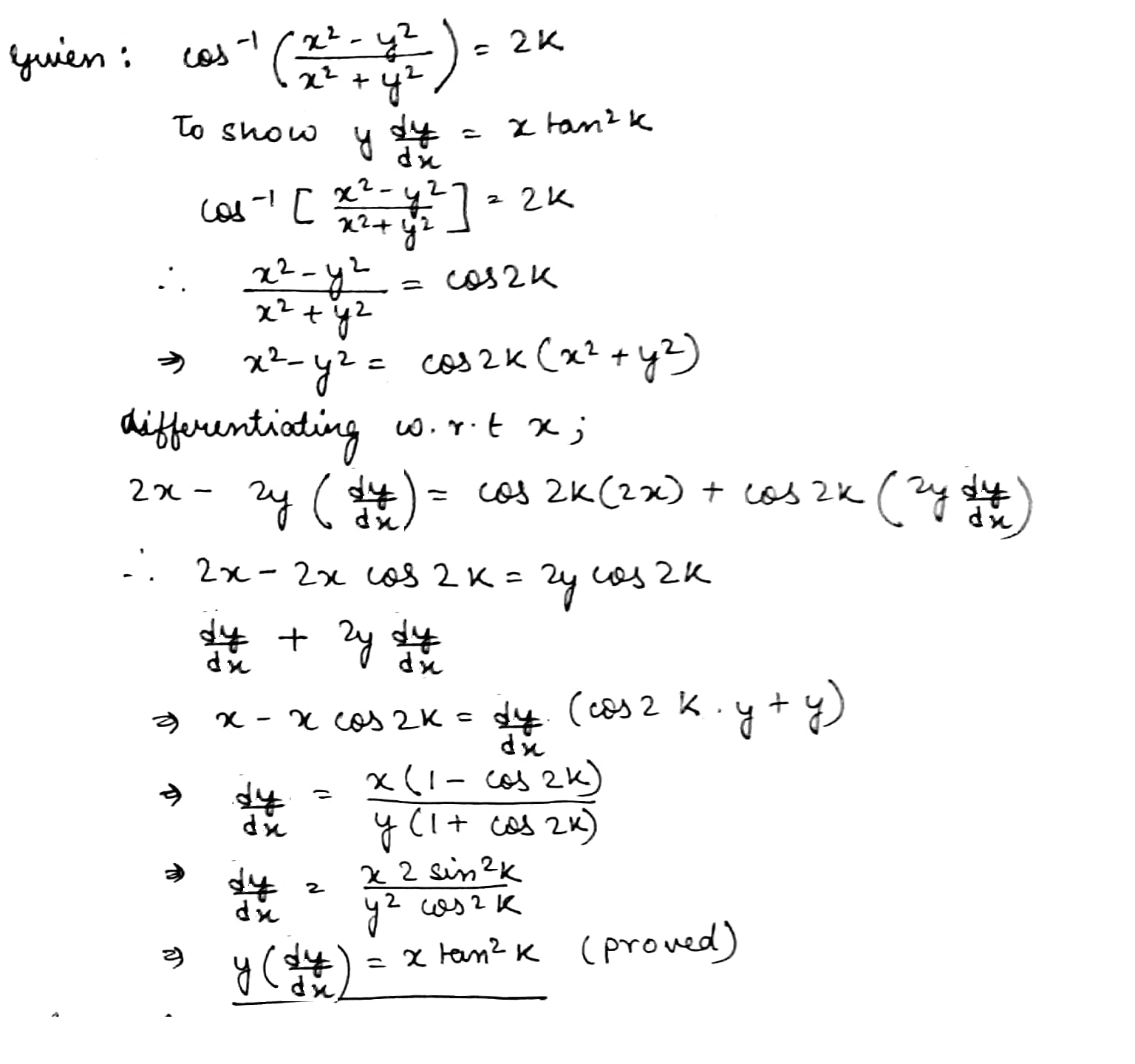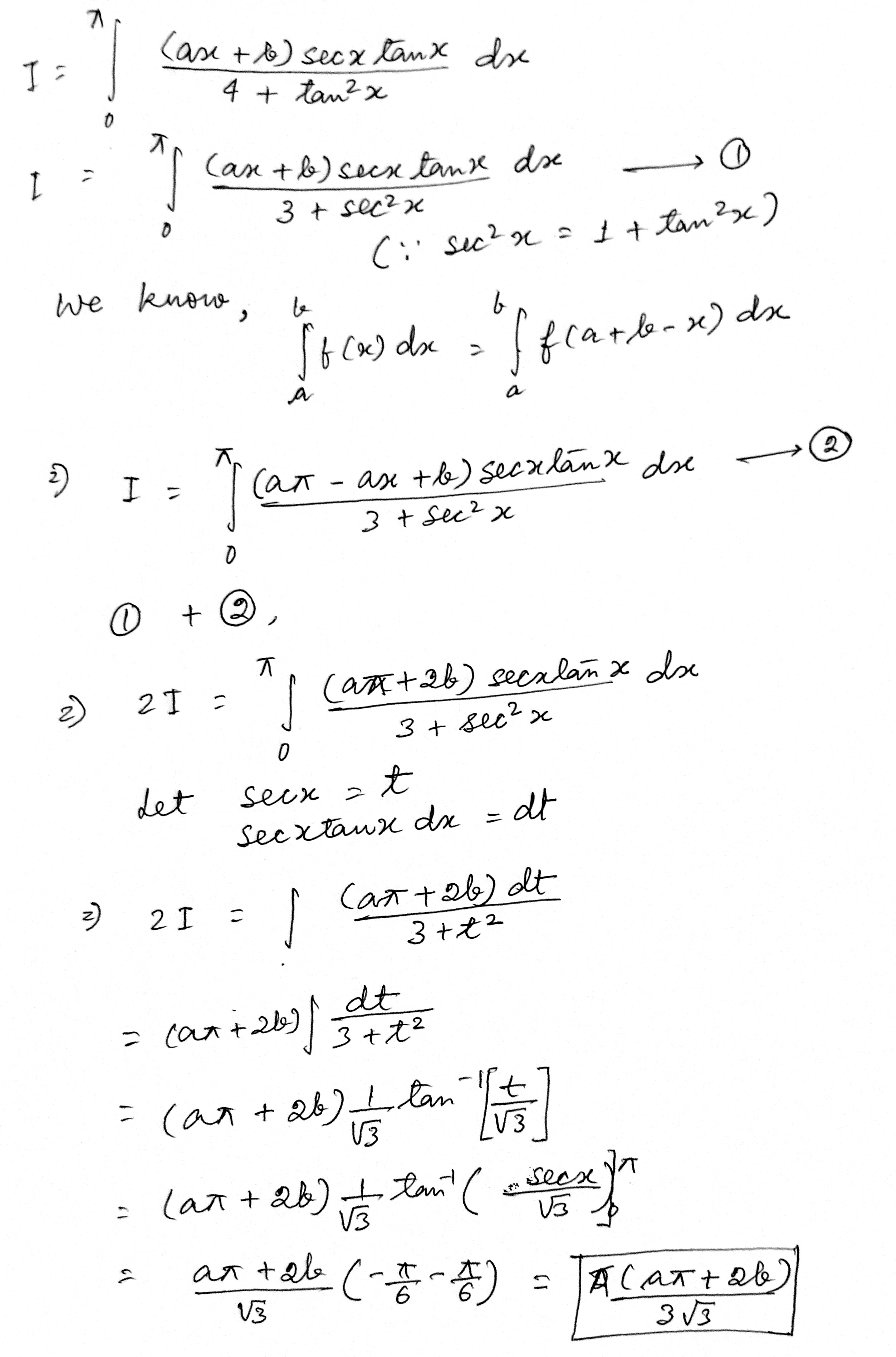Limits And Derivatives - Class 11 Commerce Maths - Extra Questions
Find the derivative of the following functions (it is to be understood that $$a, b, c, d, p, q, r$$ and $$s$$ are fixed non-zero constants and $$m$$ and $$n$$ are integers) : $$\sin (x + a)$$
$$\dfrac{d}{dx}\left\{\cos x^0\right\}=?$$
Find dy/dx=? If, x=$$\cos(\log t )$$ and y=$$\log(\cos t)$$
Find the derivatives of $$x \cos x$$
Find the differentiation of $$\sec \left( {{{\tan }^{ - 1}}{\rm{x}}} \right)$$ w.r.t. $$x$$.
Find the derivative of the following functions:
$$\displaystyle 5\sec x+4\cos x$$
Find the derivative of the following functions: $$\displaystyle \cos ec\,x$$
Find the derivative of the following functions (it is to be understood that $$a, b, c, d, p, q, r$$ and $$s$$ are fixed non-zero constants and $$m$$ and $$n$$ are integers) : $$\displaystyle \sin ^{n}x$$
Find the differential coefficient of $$\sin x$$ by first principle.
Prove that the following functions are increasing.
$$y \, = \, 2x \, + \, sin \, x \, for \, x \, \epsilon \, R$$
Find the derivative of the following functions from the first principals w.r.t to $$x$$.
$$\tan 2x$$
Solve : $$I_n=\displaystyle \int_{0}^{\dfrac{\pi}{2}}e^{-x}\sin ^nxdx$$
Solve:$$\dfrac{d}{dx}(cosec x)=?$$
Find the derivative of tan x using first principle of derivatives
Find the derivative of $$cos^2\:x$$, by using first principle of derivatives.

Dfferentiate w.r.t x:$$tan^2\, 7x$$
Find the derivation of $$\sqrt{tan x}$$ with respect to x using first principle.
If $$y=x^{ \cos x }+{ \left( \tan x \right) }^{ \cot x },find\dfrac { dy }{ dx } $$
Find $$\frac{dy}{dx},$$ if $$y=\sqrt{cos(3x+1)}$$
If $$y = \tan \left( {2x + 3} \right)$$ . Find $$\dfrac{{dy}}{{dx}}$$.
$$2\dfrac{dy}{dx}-y\sec x=y^3\tan x$$.
Differentiate:$$y=\sin{\left(2x+3\right)}$$ w.r.t $$x$$
$$f\left( x \right) =\left( \sin x+\cos x \right) $$ Find $$f^{\prime} (x)$$
Find the derivative of $$\dfrac { x ^ { 5 } - \cos x } { \sin x } $$ with respect to $$x.$$
Differentiate the function with respect to x.
$$\cos x\cdot \cos 2x\cdot \cos 3x$$.
Differentiate the following from first principle.$$\sin(x+1)$$.
Differentiate the following from first principle.$$f(x)=\cos\left(x-\dfrac{\pi}{8}\right)$$
Differentiate the following
$$\cos \sqrt{x}$$.
Differentiate: $$2\sqrt{\cot (x^{2})}$$ w.e.t.X
Find $$\dfrac{dy}{dx}$$ if $$y + \sin y = \cos x.$$
If $$y = f \left (\frac{2x - 1} {x^{2} + 1} \right )$$ and $$f^{'}(x) = \sin x^{2}$$, then $$\frac{dy} {dx} = $$ ___________. (IIT-JEE, 1982)
Differentiable the function w.r.t .x.
$$ x ^{\sin x} + (\sin x) ^{\cos x} $$
If $$ y = (\tan ^{-1} x)^{2} $$ show that $$ (x ^{2} + 1)^{2} y_{2} + 2x (x^{2}+ 1)^{2} y_{2} + 2x ( x^{2} + 1) y_{1} = 2 $$where$$y_{1},y_{2}$$ have their usual meaning.
prove that , $$ \dfrac{dy}{dx} = \dfrac{(1 + y) \cos x + y \sin x}{1 + 2y + \cos x - \sin x} $$
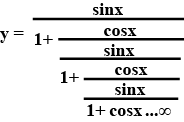
Find whether function is increasing or decreasing in given domain$$f (x) = sin^4 X + cos^4 x, x \epsilon (0, \frac{\pi }{4})$$
If $$y=(\sin x - \cos x)^{(\sin x- \cos x)}$$ then find $$\dfrac{dy}{dx}$$
Differentiate given functions w.r.t. $$x$$:
$$x^3e^x \sin x$$
Find the derivatives of the following:
$$cosec x$$.
$$\dfrac{d}{dx}$$(cos$$^2$$ x sin x)
If $$cos^{-1}{(\dfrac{x^2-y^2}{x^2+y^2})}=2k$$, show that $$y\dfrac{dy}{dx}=x tan^2k$$
$$\sum _{ 0 }^{ \pi }{ \dfrac { (ax+b) \sec x \tan x }{ 4+{ tan }^{ 2 }x } } dx(a,b>0)$$
Class 11 Commerce Maths Extra Questions
- Binomial Theorem Extra Questions
- Complex Numbers And Quadratic Equations Extra Questions
- Conic Sections Extra Questions
- Limits And Derivatives Extra Questions
- Permutations And Combinations Extra Questions
- Probability Extra Questions
- Relations And Functions Extra Questions
- Sequences And Series Extra Questions
- Sets Extra Questions
- Straight Lines Extra Questions
- Trigonometric Functions Extra Questions
